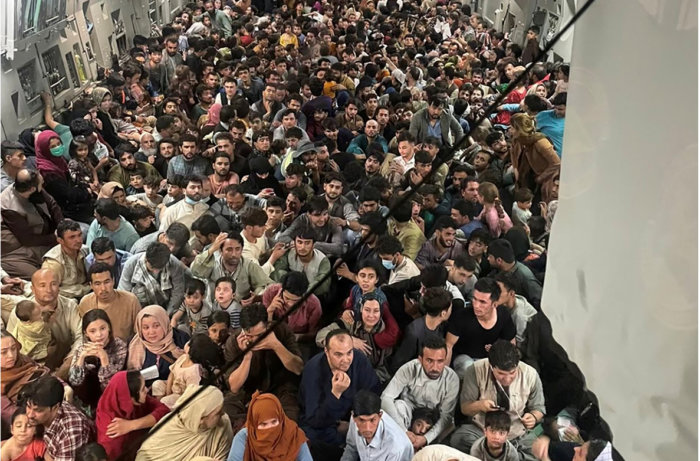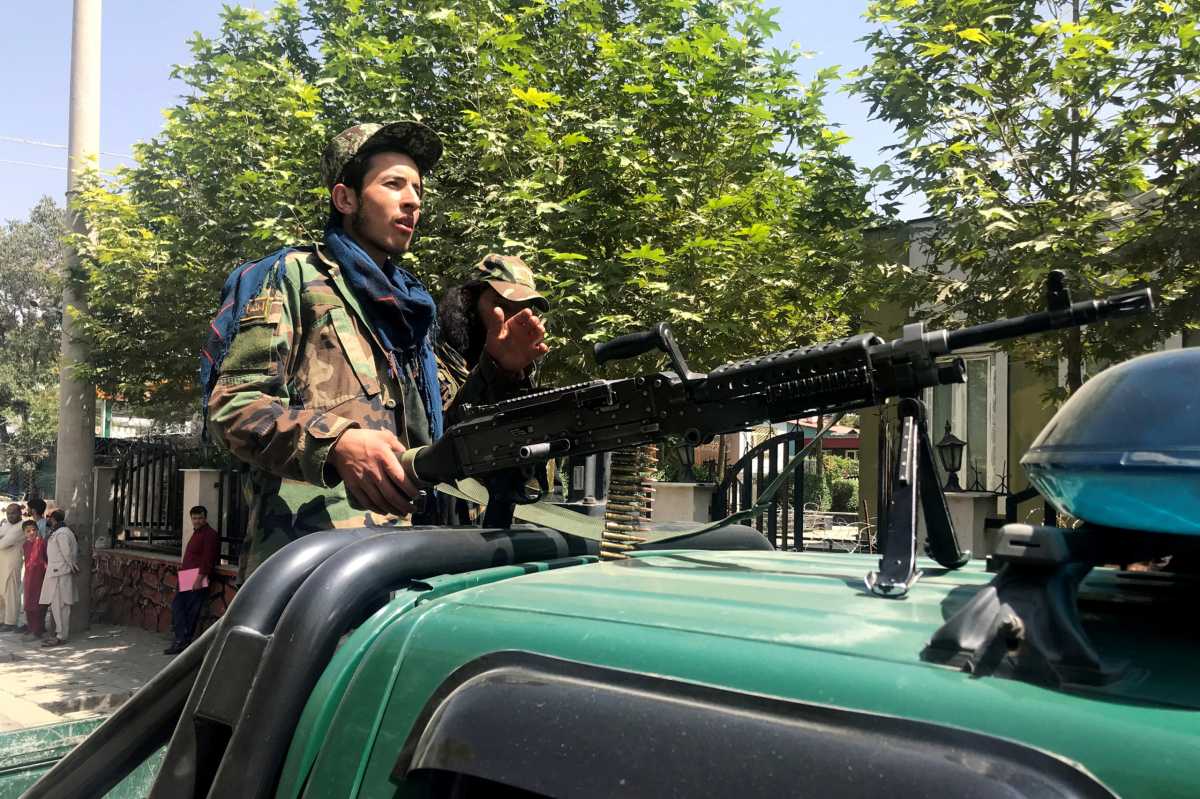The Afghan Taliban said on Tuesday they wanted peaceful relations with other countries and would respect the rights of women within the framework of Islamic law, as they held their first official news briefing since their shock seizure of Kabul.
The Taliban announcements, short on details but suggesting a softer line than during their rule 20 years ago, came as the United States and Western allies resumed evacuating diplomats and civilians the day after scenes of chaos at Kabul airport as Afghans thronged the runway.
As they rush to evacuate, foreign powers are assessing how to respond to the transformed situation on the ground after Afghan forces melted away in just days, with what many had predicted as the likely fast unravelling of women’s rights.
During their 1996-2001 rule, also guided by sharia (Islamic law), the Taliban stopped women from working and meted out punishments including public stoning. Girls were not allowed to go to school and women had to wear all-enveloping burqas to go out.
“We don’t want any internal or external enemies,” the movement’s main spokesman, Zabihullah Mujahid, said.
Women would be allowed to work and study and “will be very active in society but within the framework of Islam”, he added.
In response, United Nations spokesman Stephane Dujarric told reporters in New York: “We will need to see what actually happens and I think we will need to see acts on the ground in terms of promises kept.”
The U.N. Human Rights Council will hold a special session in Geneva next week to address “serious human rights concerns” after the Taliban takeover, a United Nations statement said.
The European Union said it would only cooperate with the Afghan government following the Taliban’s return to power if they respected fundamental rights, including those of women.
“The EU calls on the Taliban to respect their obligations under international humanitarian law in all circumstances,” said EU foreign policy chief Josep Borrell.
Several women were ordered to leave their jobs during the Taliban’s rapid advance across Afghanistan. Some are fearful that, whatever the militants say, the reality may be different, but others are defiant.
Afghan girls’ education activist Pashtana Durrani, 23, was wary of Taliban promises. “They have to walk the talk. Right now they are not doing that,” she told Reuters.
Taliban spokesman Mujahid said the group would not seek retribution against former soldiers and members of the Western-backed government, and was granting an amnesty for former Afghan government soldiers as well as contractors and translators who worked for international forces.
“Nobody is going to harm you, nobody is going to knock on your doors,” he said, adding that there was a “huge difference” between the Taliban now and 20 years ago.
Mujahid said private media could continue to be free and independent in Afghanistan and that the Taliban were committed to the media within their cultural framework.
He also said families trying to flee the country at the airport should return home and nothing would happen to them.
RESISTANCE
Mujahid’s conciliatory tone contrasted with comments by Afghan First Vice President Amrullah Saleh, who declared himself the “legitimate caretaker president” and vowed that he would not bow to Kabul’s new rulers.
It was not immediately clear how much support Saleh enjoys in a country wearied by decades of conflict.
NATO Secretary General Jens Stoltenberg said the Taliban should allow all those who wanted to leave the country to depart, adding that NATO’s aim was to help build a viable state in Afghanistan.
The alliance also said the Taliban must not let Afghanistan become a breeding ground for terrorism again, warning that it retained the military power to strike any terrorist group from a distance.
Under a U.S. troop withdrawal pact struck last year, the Taliban agreed not to attack foreign forces as they leave.
The decision by U.S. President Joe Biden, a Democrat, to stick to the deal struck by his Republican predecessor Donald Trump has stirred widespread criticism at home and among U.S. allies.
German President Frank-Walter Steinmeier said “the images of despair at Kabul airport shame the political West”, referring to the anarchic scenes on the runway on Monday.
FLIGHTS RESUME
U.S. forces took charge of the airport – their only way to fly out of Afghanistan – on Sunday as the militants wound up a week of rapid advances by taking over Kabul without a fight.
The U.S. State Department said later on Tuesday that Washington had completed a draw-down of embassy personnel from Kabul and those diplomatic personnel remaining were assisting the evacuation of American citizens and Afghan allies.

U.S. military flights evacuating diplomats and civilians restarted earlier in the day after having been suspended on Monday due to chaos at Kabul airport.
U.S. troops had fired warning shots to disperse crowds and people clung to a U.S. military transport plane as it taxied for take-off.
The U.S. Air Force said on Tuesday it was investigating the circumstances surrounding human remains that were found in the wheel well of one of its C-17s that flew out of Kabul.
U.S. National Security Adviser Jake Sullivan said the Taliban had told the United States it would provide safe passage for civilians to reach the airport.
Asked how Washington would hold the Taliban to their pledge to respect women’s rights, Sullivan signaled that options included sanctions and marshalling international condemnation and isolation.
Biden said he had had to decide between asking U.S. forces to fight endlessly or follow through on the withdrawal deal.
He blamed the Taliban takeover on Afghan political leaders who fled and its army’s unwillingness to fight.
Reuters





























